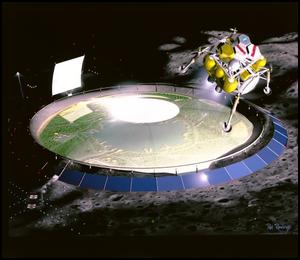
DeWitt Perry Team 06-0002
| |
|---|
|
Introduction
|
 Since the beginning of time, man has always been curious about the world around him. Now, like our ancestors, we are curious not about our planet but about outer space. Is there or was there any life beyond our planet, and could we live in outer space on the Earth's moon or neighboring planets?
Since the beginning of time, man has always been curious about the world around him. Now, like our ancestors, we are curious not about our planet but about outer space. Is there or was there any life beyond our planet, and could we live in outer space on the Earth's moon or neighboring planets?
These are questions that lunar and planetary rovers could help us answer. NASA has been considering sending another mission back to the moon, having astronauts collect soil samples and perhaps manning a small scientific outpost or even living on the moon for a long duration of time. Science fiction and some scientists have envisioned sending an entire human colony by spaceship to the moon and setting up a city. The first step in this process is to find usable water on the moon.
Why does the moon need to have water? If NASA had to ship water in rockets, it would cost more than $72,000 per gallon because of fuel costs [1]. If there is water, there could be enough power to run a small colony on the moon [1]. The water could be disassociated into hydrogen and oxygen and used for fuel, and the colony could be powered by solar panels on certain mountains near the south pole/Aitken Basin region that are nearly perpetually bathed in light [10]. Unmanned rovers could find the answer to these questions and finally put a man on the moon for good.
This web site will present the reader with a history of lunar rover missions to the moon and a comparison of lunar rovers to Martian rovers, an overview of the Aitken basin and why scientist believe there could be water and we will present a possible solution to finding water on the moon.